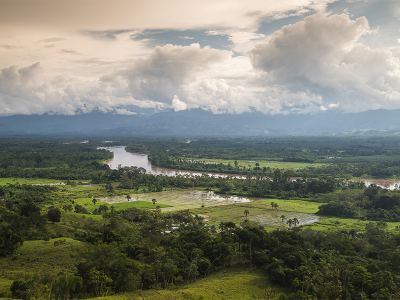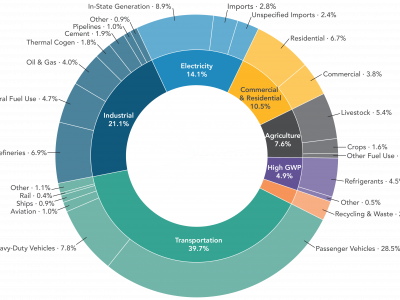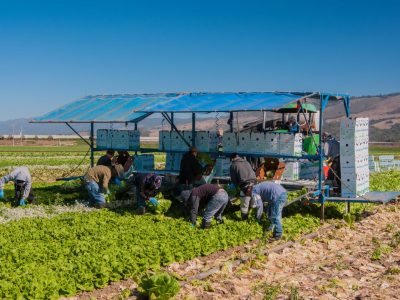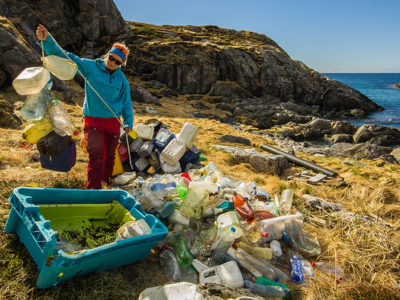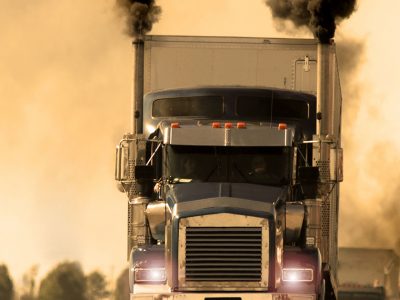Environmental Justice
Brazil: Presidential Election, Saving the Amazon, and Combating Climate Change
Views from the Governors’ Climate and Forests Task Force
By Jason Gray and Colleen Scanlan Lyons Co-Project Directors, GCF Task Force Yesterday, the people of Brazil had a historic vote in favor of returning President Luiz Inácio Lula da Silva (Lula) to power. Lula, who served as President of Brazil from 2003 to 2010 (and is the first President in Brazil to return for …
Continue reading “Brazil: Presidential Election, Saving the Amazon, and Combating Climate Change”
CONTINUE READINGGCF Task Force Exchange of Experiences in San Martin, Peru
Notes from the Field
From October 10-13, 2022, the Governors’ Climate and Forests Task Force (GCF Task Force) – a project of the Emmett Institute on Climate Change and the Environment at UCLA School of Law and UCLA’s Institute of the Environment and Sustainability, in partnership with the Institute of Behavioral Science at the University of Colorado, Boulder – and …
Continue reading “GCF Task Force Exchange of Experiences in San Martin, Peru”
CONTINUE READINGCalifornia’s Secret Weapon: The Scoping Plan
There’s no substitute for a comprehensive policy vision.
The scoping process has been key to California’s success in cutting greenhouse gas emissions. The process requires the government to assess past progress, project future emissions, and come up with a strategy to meet its climate goals. In contrast, in many states – and at the federal level – there’s no real mechanism for a …
Continue reading “California’s Secret Weapon: The Scoping Plan”
CONTINUE READINGNew Legislation Starts Process of Strengthening Protections for Outdoor Workers
AB 2243’s provisions prompt Cal/OSHA to look at heat and air quality regulations in light of increasing temperatures and poor air quality
Thank you to Jasmine Robinson, Advanced California Environmental Legislation and Policy Advocacy Clinic student, for her research support. Last month, AB 2243 (E. Garcia & L. Rivas, 2022) was chaptered, requiring the California Division of Occupational Health and Safety (Cal/OSHA) to consider adopting rules requiring (1) employers to distribute copies of heat-related illness prevention plans …
Continue reading “New Legislation Starts Process of Strengthening Protections for Outdoor Workers”
CONTINUE READINGHappy 50th Anniversary, Federal Clean Water Act
One of America’s Foundational Environmental Laws Has Proven Transformational, But Requires Updating a Half-Century Later
The Clean Water Act (CWA), one of the nation’s most important environmental laws, is 50 years old today. It’s proven to be one of the most successful of America’s bedrock federal environmental statutes. But the CWA is far from perfect, needs some important updating, and will probably never fully achieve the aspirational goals Congress proclaimed …
Continue reading “Happy 50th Anniversary, Federal Clean Water Act”
CONTINUE READINGAddressing Livestock Methane in California
New CLEE/UCLA report identifies policy solutions to reduce emissions | Webinar Nov. 10
Methane is a climate super-pollutant that is 80 times more powerful than carbon dioxide over a 20-year period. Given its potency and short life, experts believe that reducing methane emissions is the highest-yield action that governments and businesses can take to curb near-term warming. In the US, livestock are responsible for over one third of …
Continue reading “Addressing Livestock Methane in California”
CONTINUE READINGCalifornia Adopts Nation-Leading Legislation to Cut Plastic Pollution
Extended producer responsibility law will reduce single-use waste and shift responsibility to industry
In a welcome reprieve from news coming out of the Supreme Court, here’s an uplifting story from the Golden State: On Thursday, Governor Newsom signed SB 54, a comprehensive piece of legislation aimed at significantly reducing single-use waste. The law will affect just about every type of plastic packaging you see walking down the supermarket …
Continue reading “California Adopts Nation-Leading Legislation to Cut Plastic Pollution”
CONTINUE READINGGuest Contributors Jasmine Robinson and Jessica Vived: Proposed Extreme Heat and Air Quality Protections for Agricultural Workers Advance in California Legislature
AB 2243 resulted from a partnership between law students in UCLA Law’s California Environmental Legislation and Policy Clinic, UCLA’s Food Law and Policy Clinic, and Assemblymember Eduardo Garcia
We are students in UCLA Law’s California Environmental Legislation and Policy Clinic, a course in which students work with legislative staff in the California State Legislature to advance environmental policy goals. In Fall 2021, working with staff for State Assemblymember Eduardo Garcia, we developed recommendations for stronger heat and air quality protections for agricultural workers. California’s …
CONTINUE READINGNew Paper Addresses California Air District Authority to End NOx Pollution from Household Appliances
Most household appliances, like furnaces and water heaters, are powered by fossil fuels and emit nitrogen oxides (NOx)—toxic and highly reactive gases that endanger human health and the environment. To address this problem, air districts have adopted policies to reduce NOx pollution from appliances, and others across California are considering similar proposals. In a new …
CONTINUE READINGEnvironmental Justice, Truck Pollution, and the Biden EPA
How will EPA integrate EJ into its rule making? The answer remains murky.
EPA recently released a notice of proposed rulemaking for pollution from new heavy-duty vehicles. I was interested to see how environmental justice figured into the analysis, looking for clues about how the Biden Administration plans to make EJ part of decision making. What I found wasn’t very enlightening. Perhaps they’re still trying to come up …
Continue reading “Environmental Justice, Truck Pollution, and the Biden EPA”
CONTINUE READING




